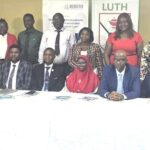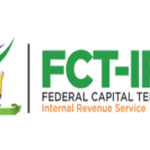By Tosin Kolade
Residents of Wuse Zone six in the Abuja Municipal Area Council (AMAC) of the FCT have raised alarm over alleged contaminated water running from their taps.
Complaints over polluted water in the Wuse zone six axis of AMAC have intensified in recent weeks, with several residents reporting similar experiences of unsafe water supply.
A resident, Mr Jimoh Olatunji, told the News Agency of Nigeria (NAN) on Monday in Abuja that he and his daughter fell ill after drinking from the tap.
“After drinking the water with my daughter, we both had running stomachs for days and had to visit the hospital for treatment,” Olatunji said.
Another resident, Mr Uche Uchechukwu, said the water was unfit for basic domestic use.
“Once we open the taps, black and red worms come out with a faecal smell. The water cannot be used for cooking, bathing or washing,” he said.
Chairman of the Wuse Zone Six Residents Association, Alhaji Ayinde Soaga, expressed displeasure over the development and assured members that he would take the matter up with the management of the FCT Water Board.
“Yes, by the grace of God, Insha Allah, I will go to the FCT Water Board in Area 3 this coming week, from Monday till about Friday.
“I’ll go to the office of the people who collect tenement rate to resolve the issues that were raised. By our next meeting, I assure you that I will have gotten to a conclusion on them, by God’s grace,” he said.
In a telephone interview, the General Manager of the FCT Water Board, Mr Daniel Salka, insisted that the board supplied clean potable water across the city, describing the Wuse zone 6 case as a localised issue.
“They have sent this complaint to me before. I have sent people there twice, and they discovered that it was a localised issue. We gave advice on what is to be done,” Salka said.
He explained that some houses had sewer lines close to their taps, which could lead to contamination, stressing that the Board’s supply remained clean.
He added that residents with pipes located near sewer lines or septic tanks should engage professionals to address the issue internally.
“But even this one that you are talking to me about, nobody has told me anything within the last one month or two.
“They didn’t report to me, though they used to call me. Nobody said anything to me, so I’m surprised I’m hearing it from you.
“It’s not our water. Our water is not smelling. It’s the same water we are serving to all people,” he said.
Salka advised residents not to drink the water in the meantime, adding that he would send a team through the area manager to inspect the location once details were provided.
NAN reports that water pollution is one of Nigeria’s biggest environmental and health threats, with official data showing 41 per cent of public water supplies contaminated with faecal matter.
Contamination at the source and point of consumption reaches 68 and 70 per cent, respectively, while UNICEF warns that two-thirds of water sources are unsafe.
Oil spills in the Niger Delta, where more than 92 million litres of crude have been discharged, and reports of toxic metals and microplastics in rivers such as the Osun further compound the crisis.
To tackle the challenge, the Federal Ministry of Water Resources and Sanitation has set up National Water Quality Reference Laboratories to track groundwater, industrial effluents and treated water.
Nigeria has also introduced laws and standards under NESREA and the National Oil Spill Detection and Response Agency, while the 1 billion dollars Ogoniland clean-up seeks to restore polluted land and water.
Plastic pollution adds to the burden, prompting government plans to ban single-use plastics nationwide from 2025, following Lagos’s earlier restrictions.
Experts, however, stress that enforcement, funding and inter-agency coordination remain crucial to protecting water resources and ensuring safe supply for Nigerians. (NAN)
Edited by Oluwafunke Ishola












